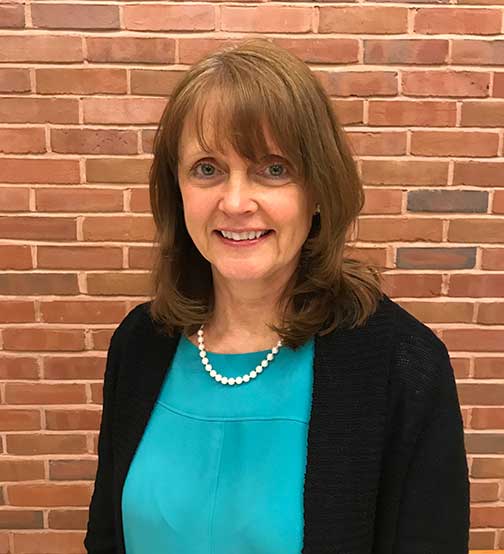Valeria Culotta named Associate Vice Provost for Postdoctoral Affairs
Professor will continue her research at the Biochemistry and Molecular Biology Department while advancing postdoc policies and priorities throughout the Johns Hopkins University system

Biochemistry and Molecular Biology Professor Valeria Culotta has been named the Associate Vice Provost for Postdoctoral Affairs, a newly created position. In this role, Culotta will continue to advance policies and priorities for postdocs across all of the Johns Hopkins divisions and labs, while continuing her work as a BMB faculty member.
"The Provost’s Office is committed to supporting postdoctoral fellows across the entire institution. Over the past two years as a Provost’s Fellow, Val has advanced polices and priorities for postdoctoral fellows. I can think of no one better to listen to postdocs’ concerns and try to identify practical solutions than Val. We are delighted to have her in this permanent position to continue that work,” said Nancy Kass, Vice-Provost for Graduate and Professional Education.
While the research topics of postdocs in different departments across Johns Hopkins can vary greatly, Culotta said that they all have something in common – they are at a transitional stage, no longer students but still preparing for their next job and learning to work independently, and in need of professional guidance.
“They’re trainees. And that’s often forgotten. That’s a message that we’d like to send,” she said.
For the last two years Culotta worked on postdoc issues as a Provost’s Fellow. When she started, there were no postdoc policies that covered the entire Johns Hopkins system, and how postdocs were treated varied widely–for example, some weren’t paid a salary and others were told they couldn’t take sick leave or vacation, Culotta said. She developed a Johns Hopkins-wide policy that addressed financial issues and benefits like minimum salary and health care, to ensure that all postdocs at Johns Hopkins are treated fairly. The policy became official January 1, 2019.
Another project that Culotta started as a Provost’s Fellow was to build a database of all the postdoctoral fellows at Johns Hopkins, which revealed postdocs working in unexpected places like the Sheridan Libraries. The database includes information about each postdoc’s research, school and mentor along with demographics, and also provides a way for the University to reach out to targeted groups of postdocs. Culotta said that she wants to continue developing the database or similar systems for use by the University leadership as well as to give postdocs themselves a way to connect to each other.
“Postdocs are such an important talent pool of the university, and they’re often forgotten. They often feel that they’re siloed, they’re not able to find each other, they’re not able to communicate. A lot of postdocs never leave the lab, they never get to interact with their bigger community. And so there’s still a lot that needs to be done.”
Culotta credits her interest in the area in part to her own experience as a postdoc, which she described as the best years of her life – no longer a student needing to take classes or exams and instead getting to do independent research and figuring out what to do next, but without the responsibility of running a lab.
In contrast to her own experience, “I see sometimes postdocs that are just not making the most out of their postdoc years, and it’s something that the university can really help if they provide enough structure for the training of postdocs, just like we do for students,” Culotta said.
Some examples of that structure Culotta discussed are mentoring and professional development. Culotta is working on a mentoring guide, which she hopes will be a start in reaching out to mentors and getting them onboard with the idea that postdocs are a talent pool that needs guidance. And she pointed to professional development resources that are already in place.
“One of the things that I tell all my postdocs is the professional development office we have here in East Baltimore is phenomenal,” Culotta said.
Culotta started working to support postdocs and their training about ten years ago when then-Chair Pierre Coulombe asked her to administer the BMB postdocs. She created a monthly postdoc club with activities like career panels featuring speakers from outside the school and workshops on teaching or grant writing. The club was successful and is still running today. She later became the Bloomberg School’s first Director of Postdoctoral Training in 2016.
“I’m excited that this new position will allow Val to continue her incredibly important work to support postdoctoral training across Johns Hopkins – including here in our department. We are lucky to have her as part of BMB,” said E.V. McCollum Chair Ashi Weeraratna.
In addition to working on postdoc issues across the University, Culotta also has postdocs in her own lab.
“I think it’s helping me be a better mentor to them, just seeing the bigger picture. And I learn a lot from my postdocs that I can then convey to the university as to what are the needs,” she said.
